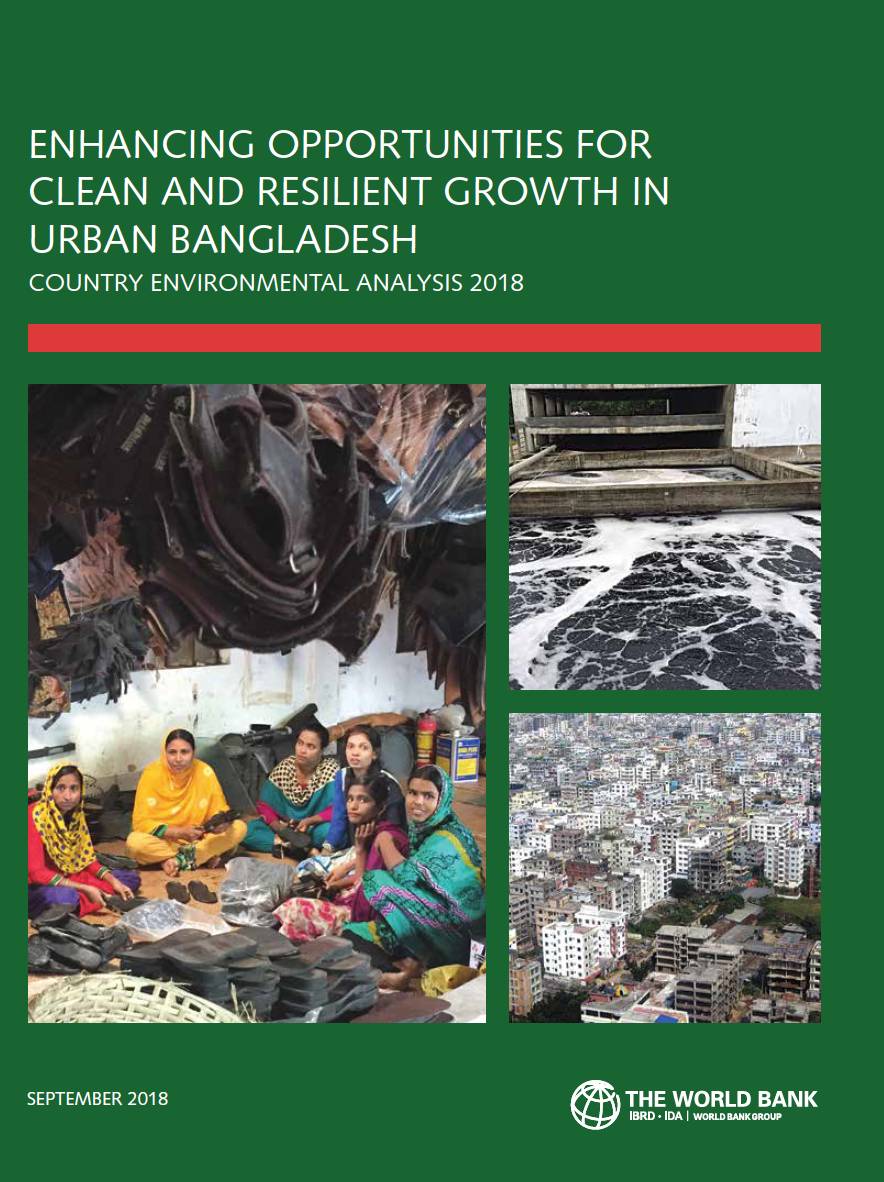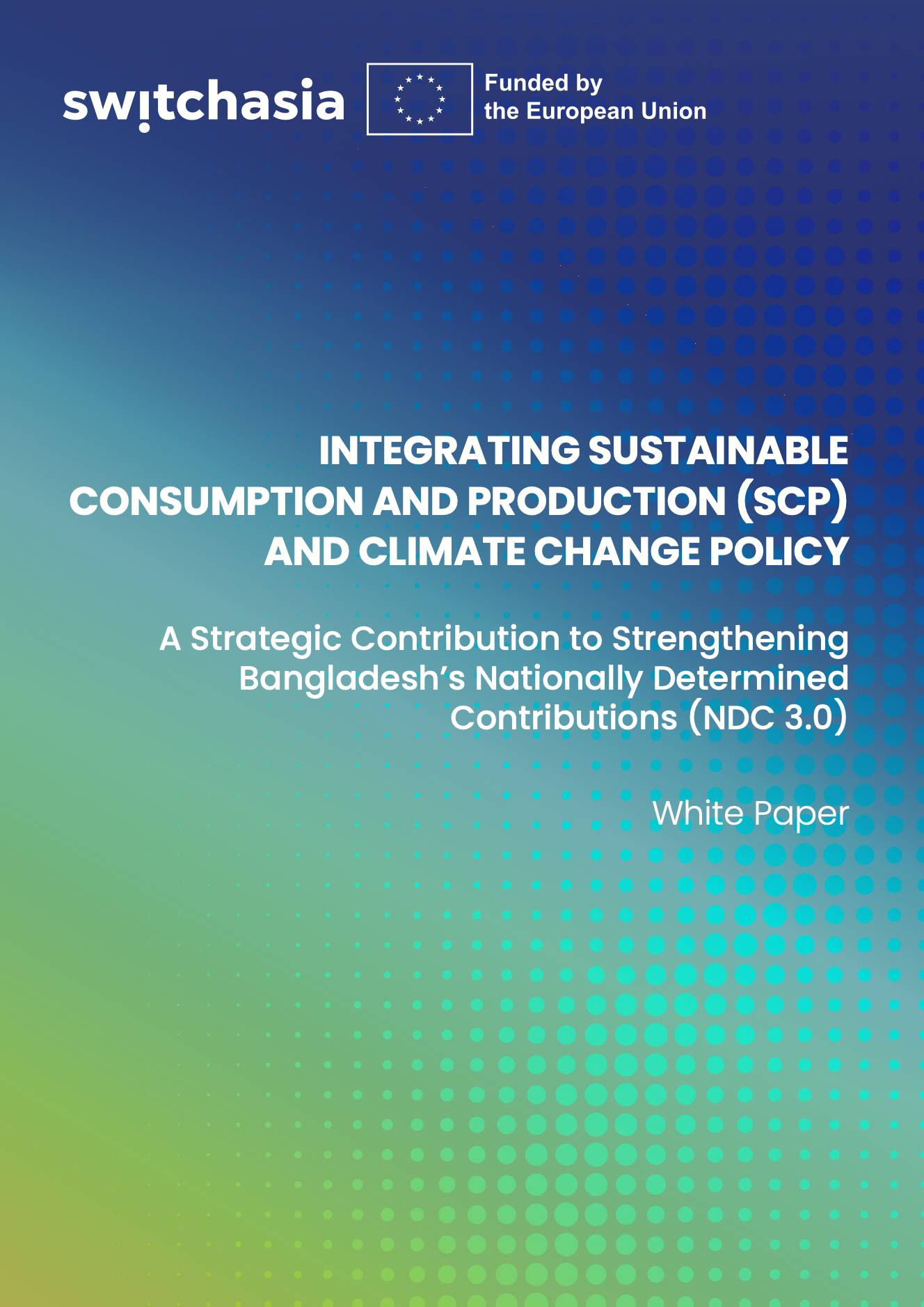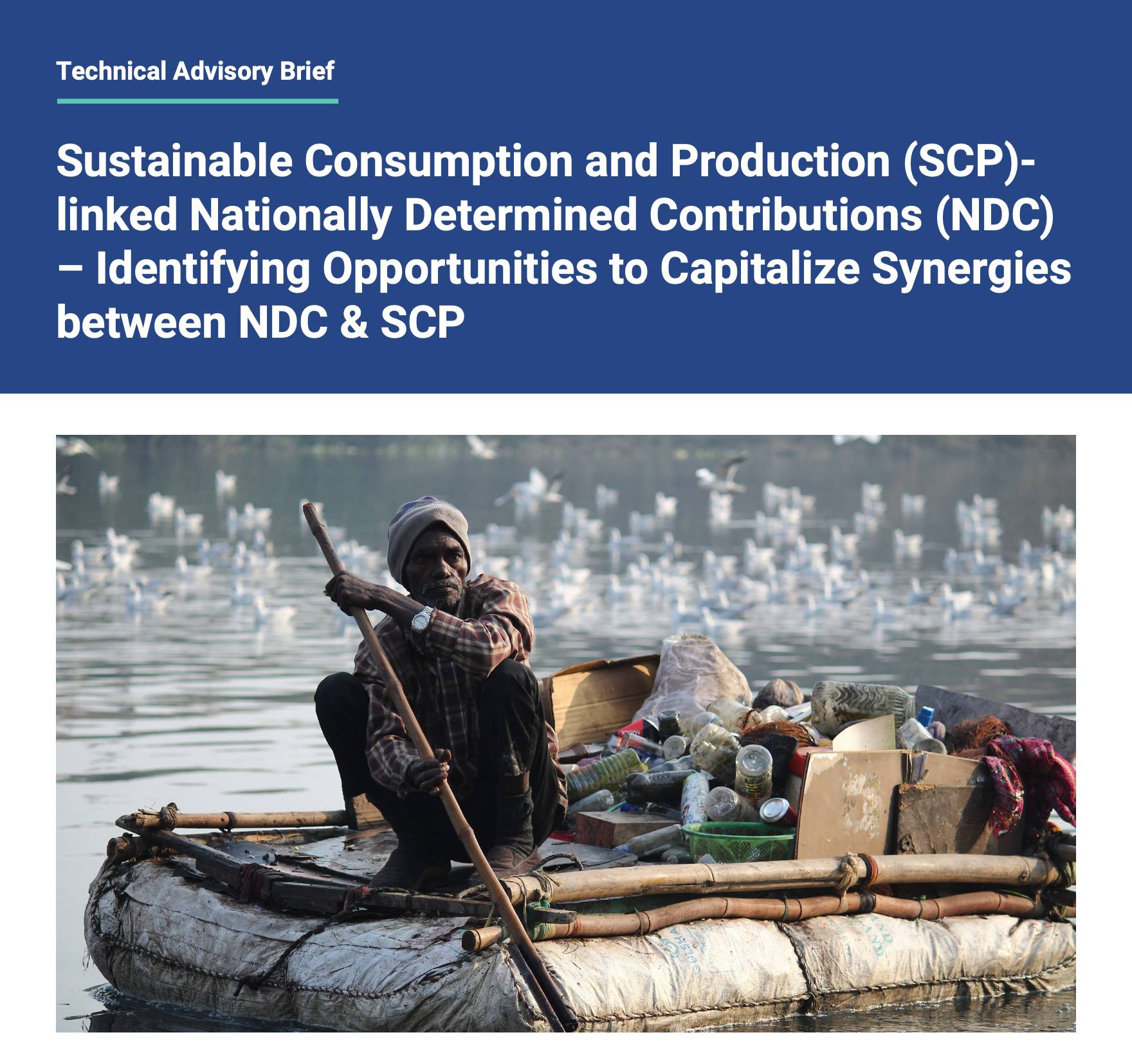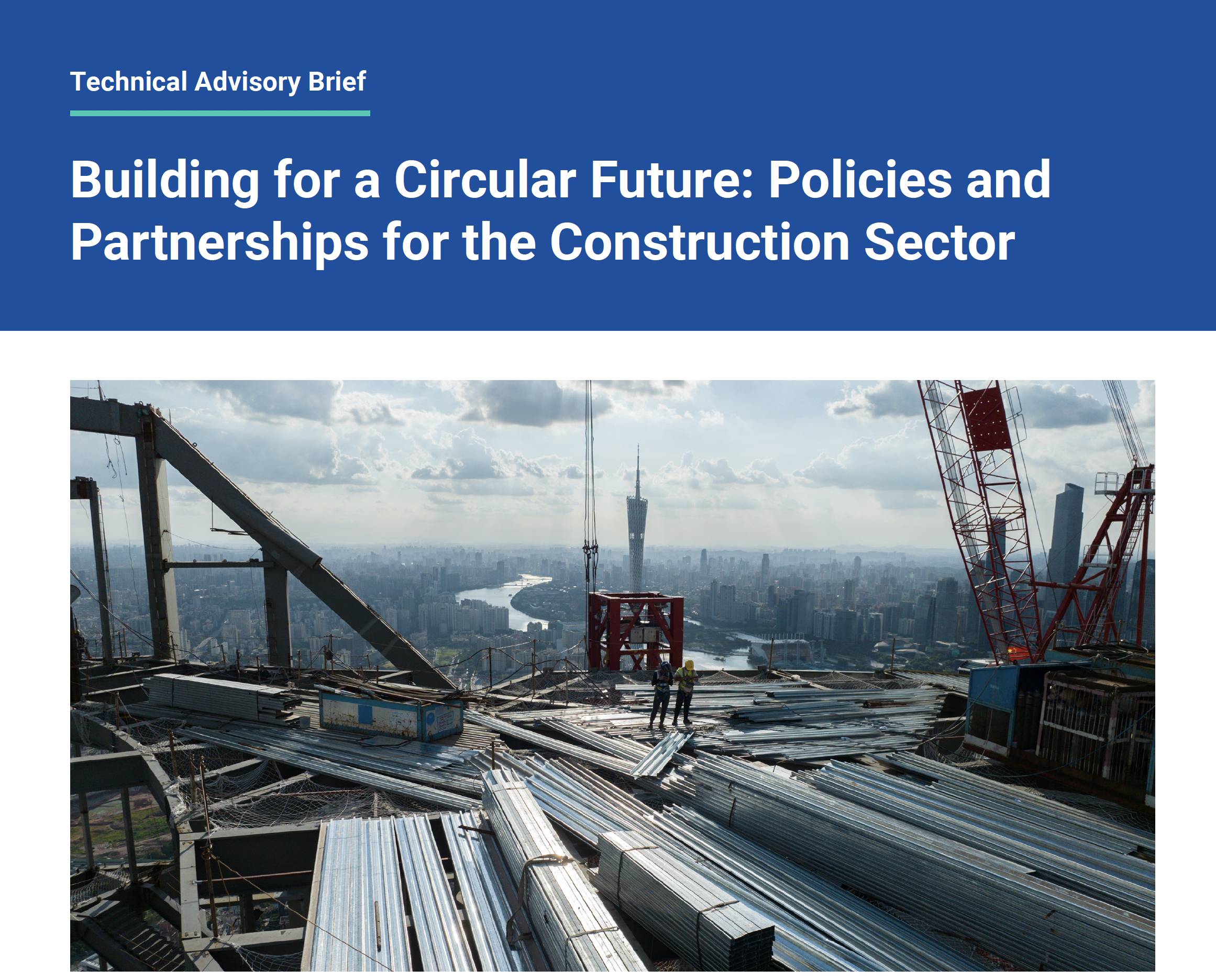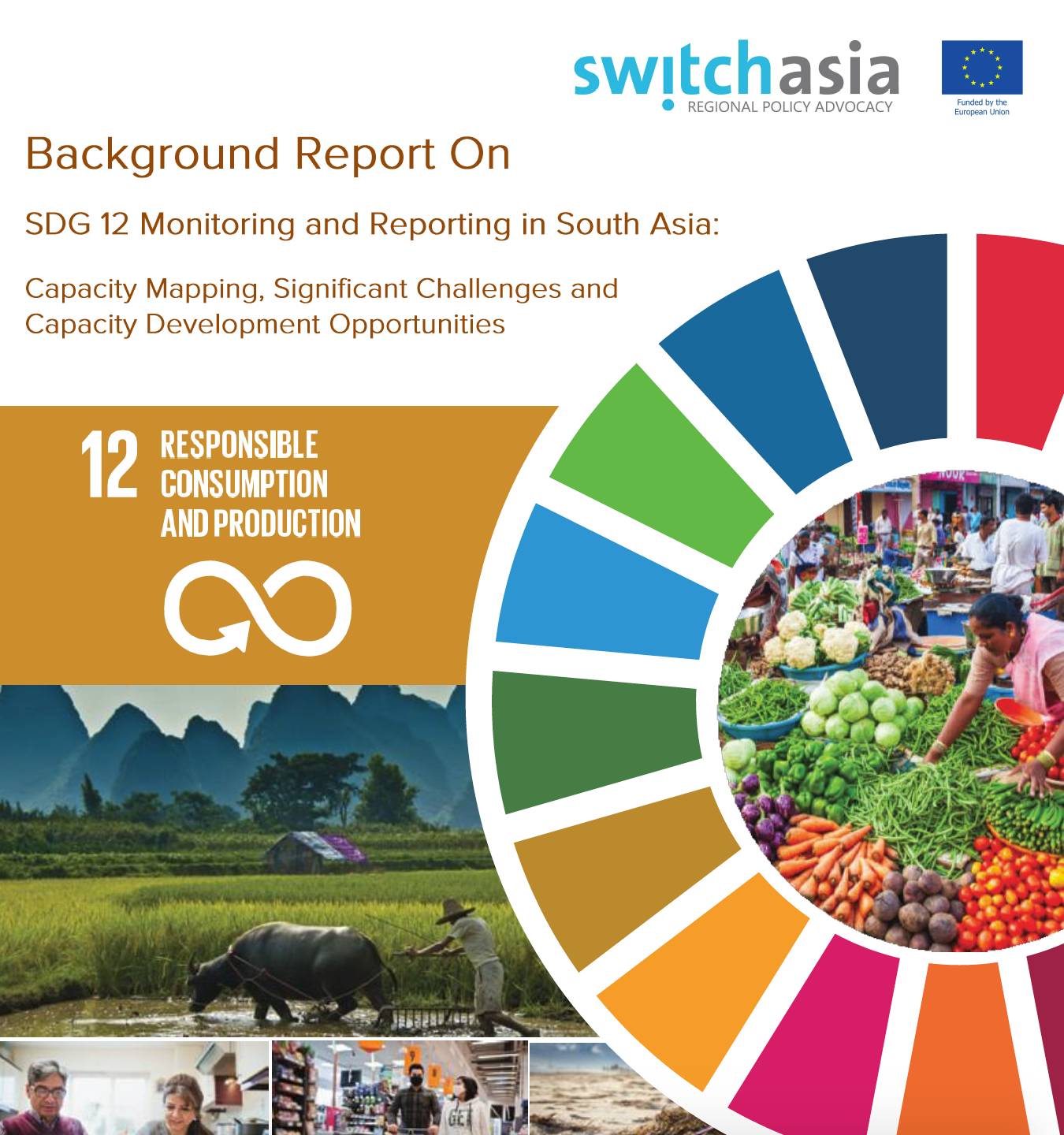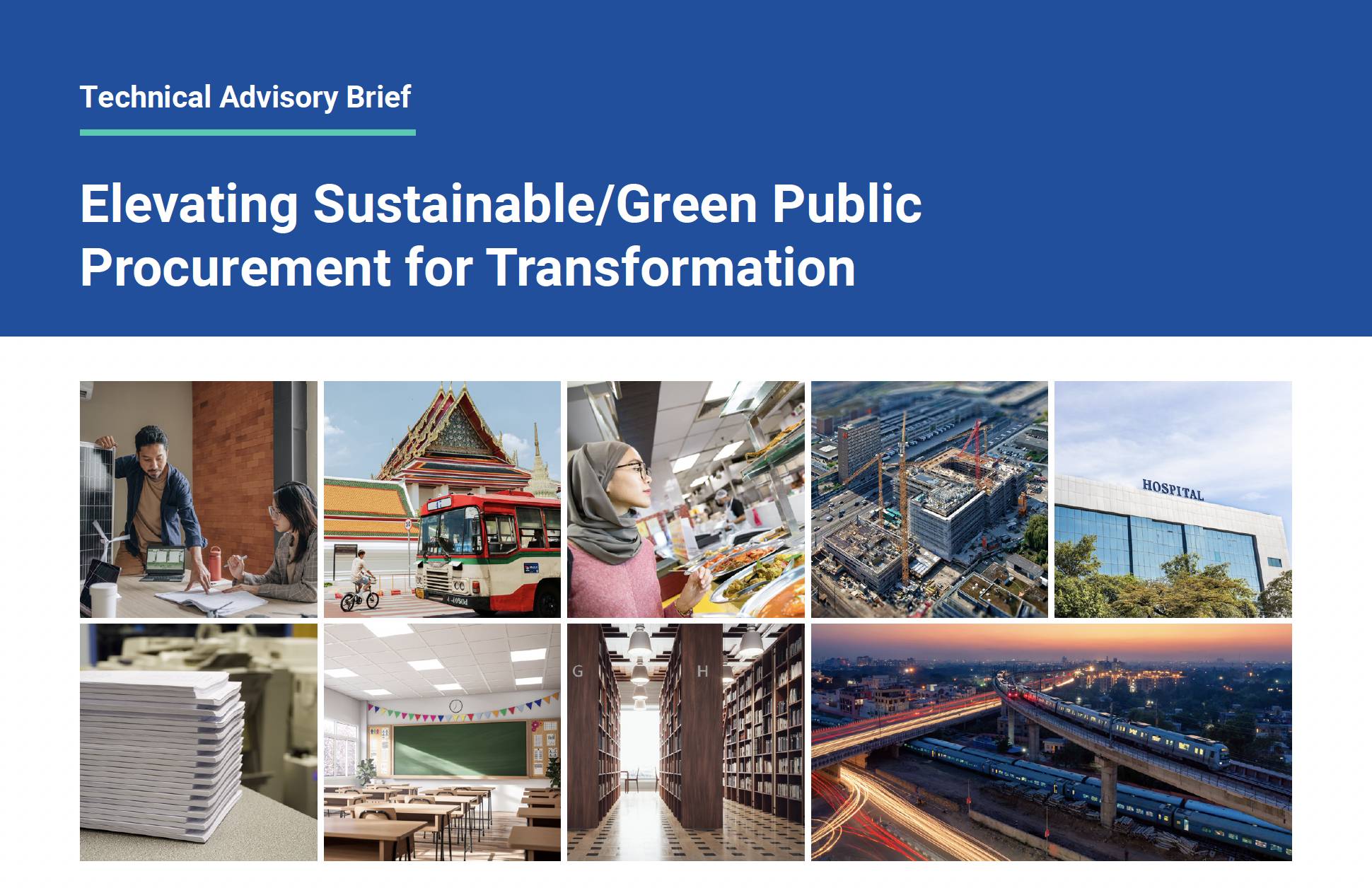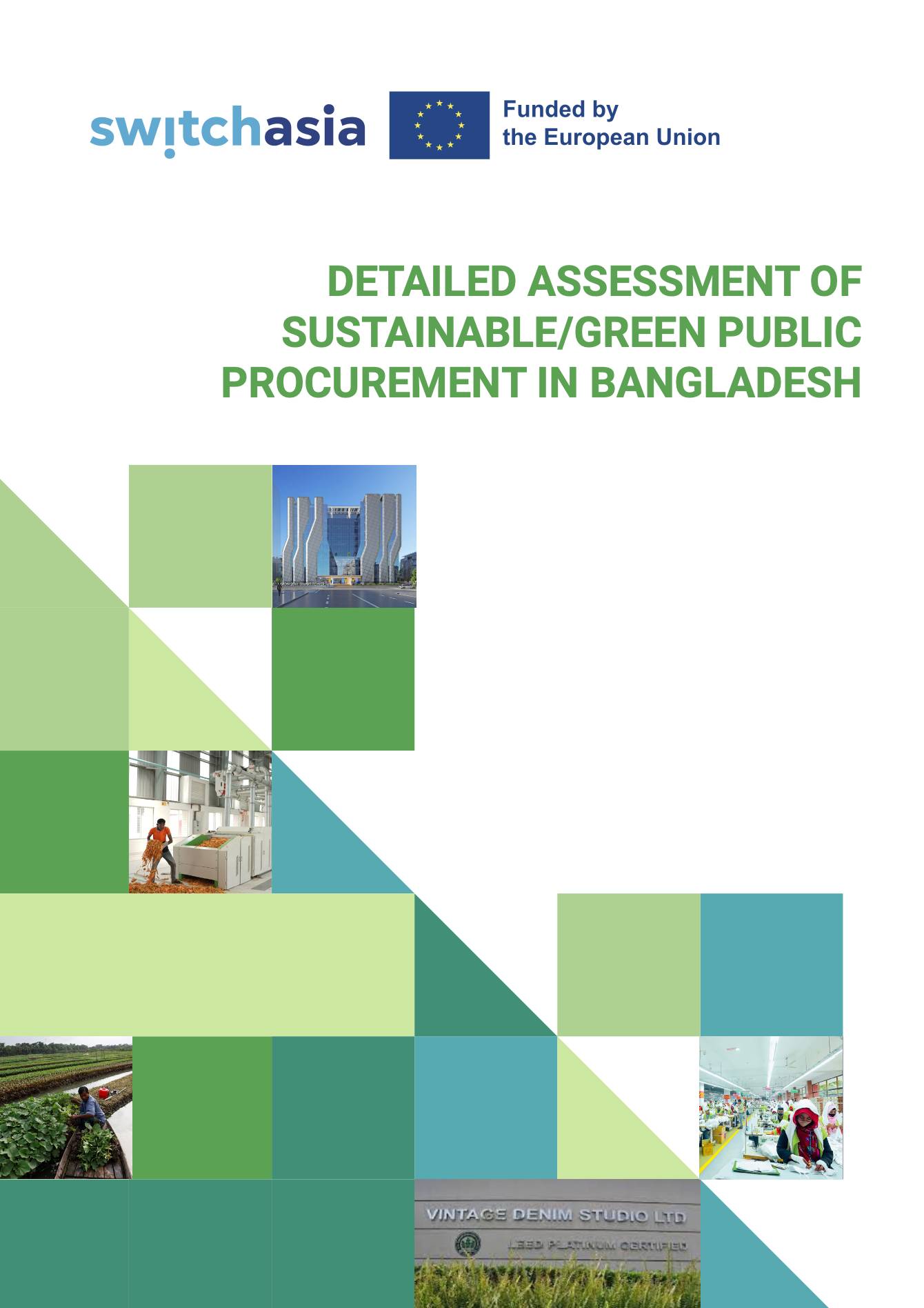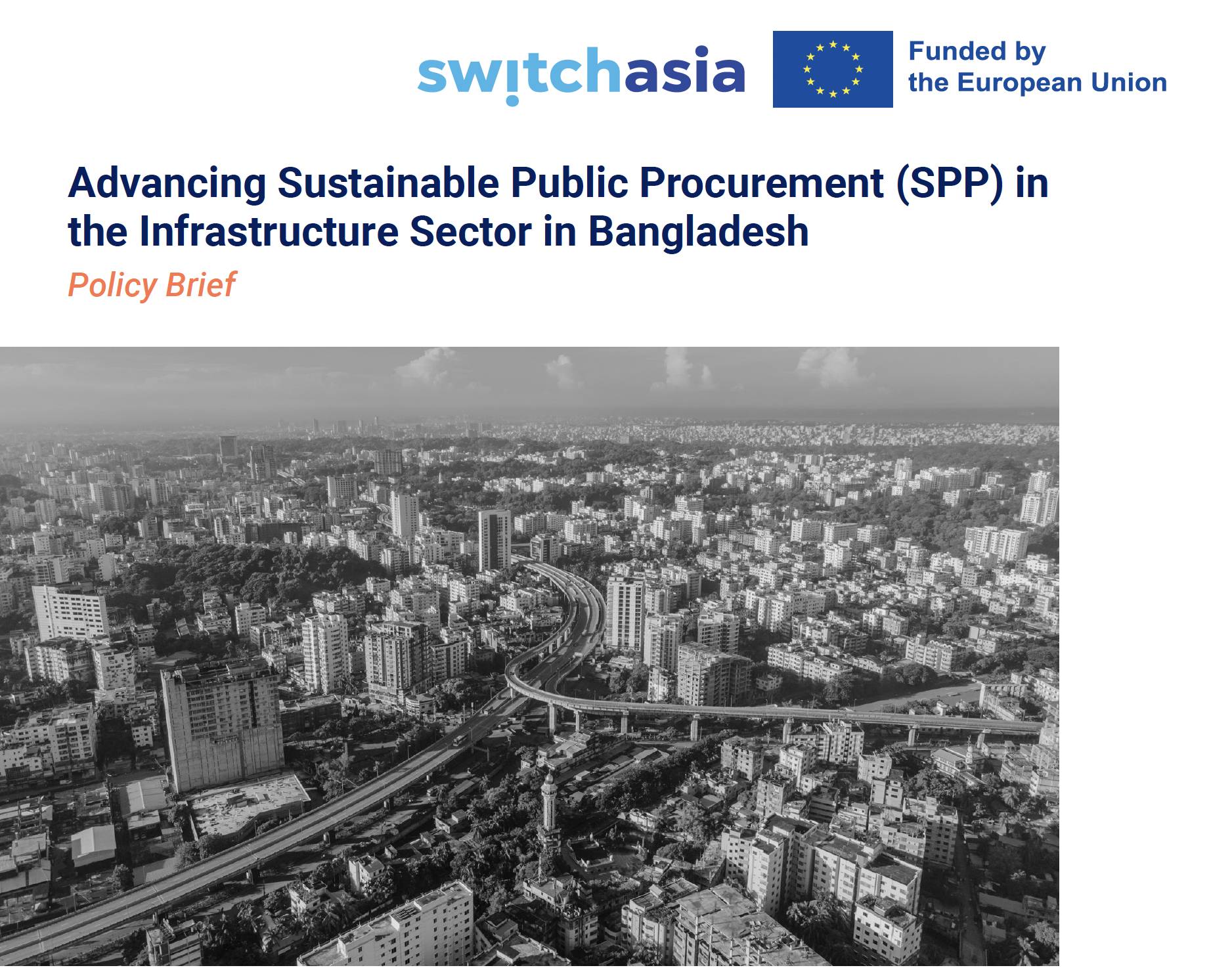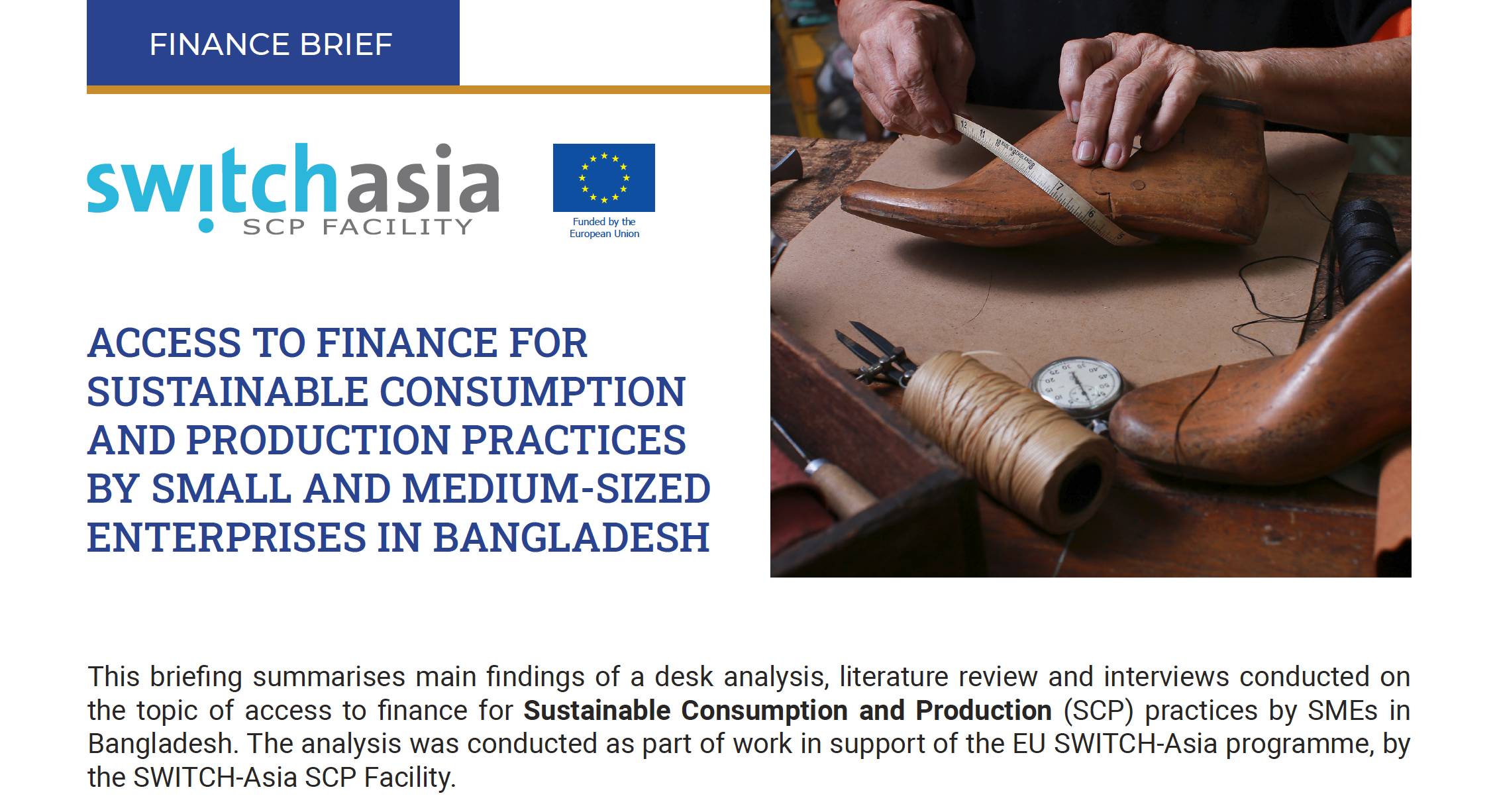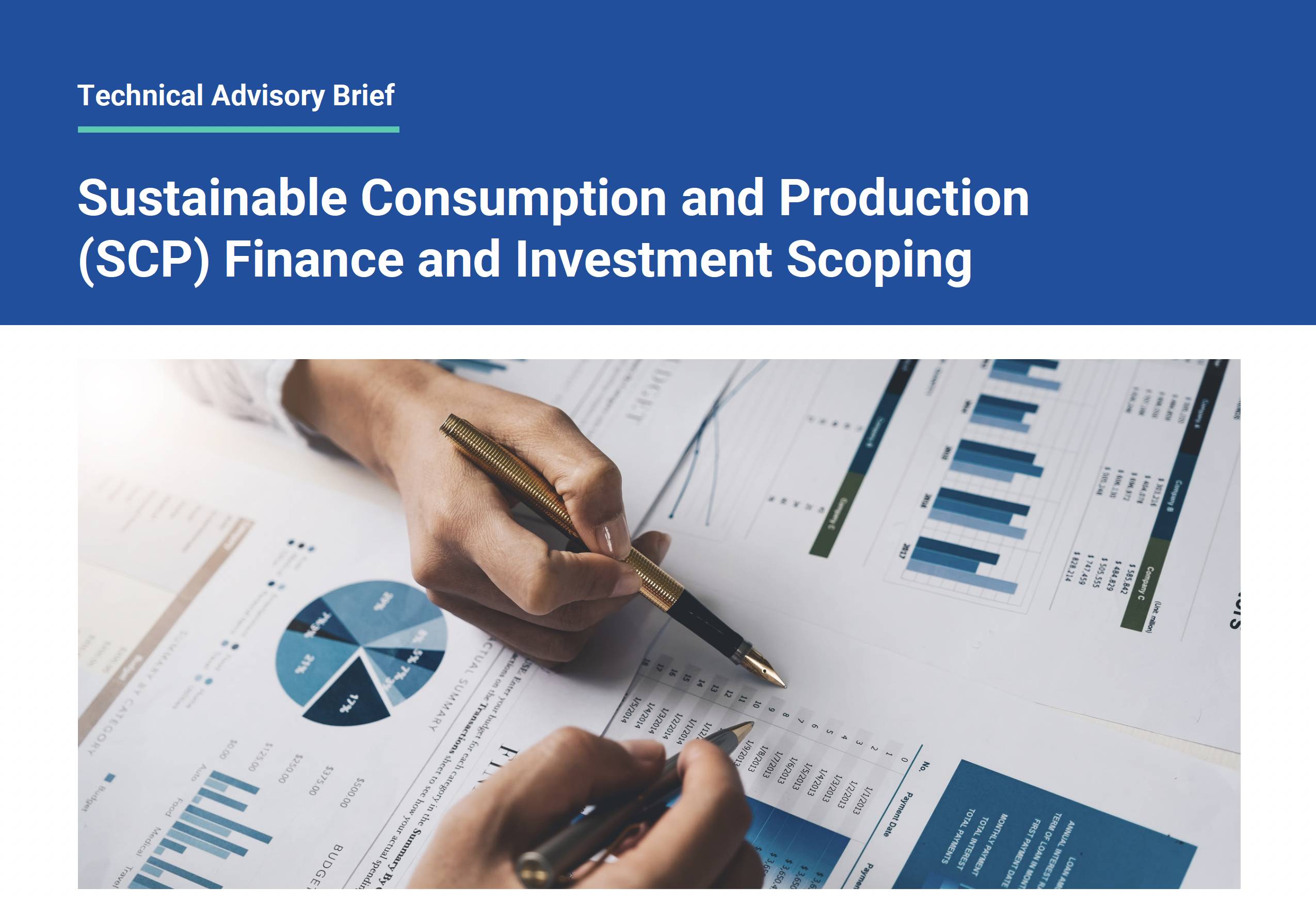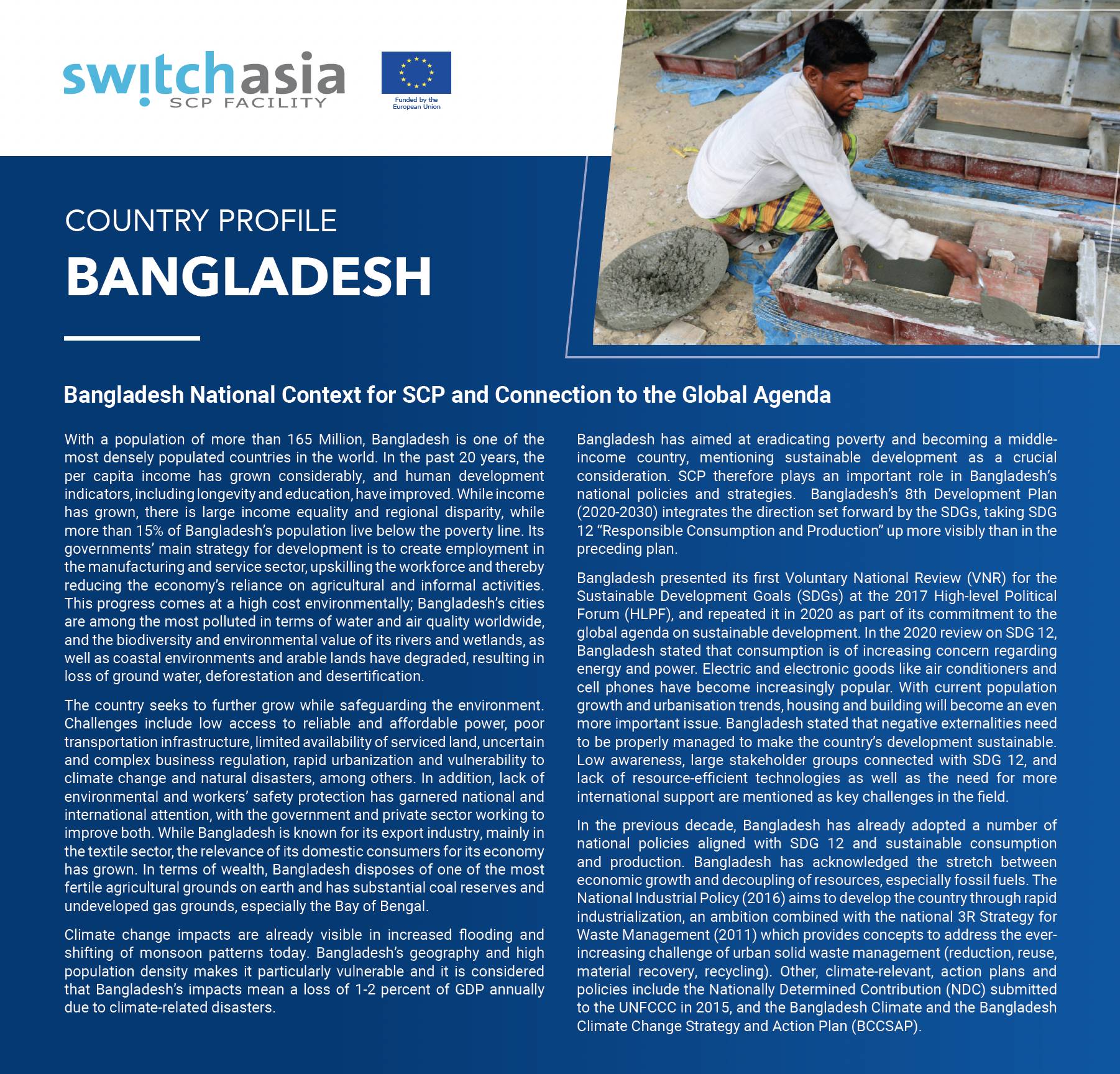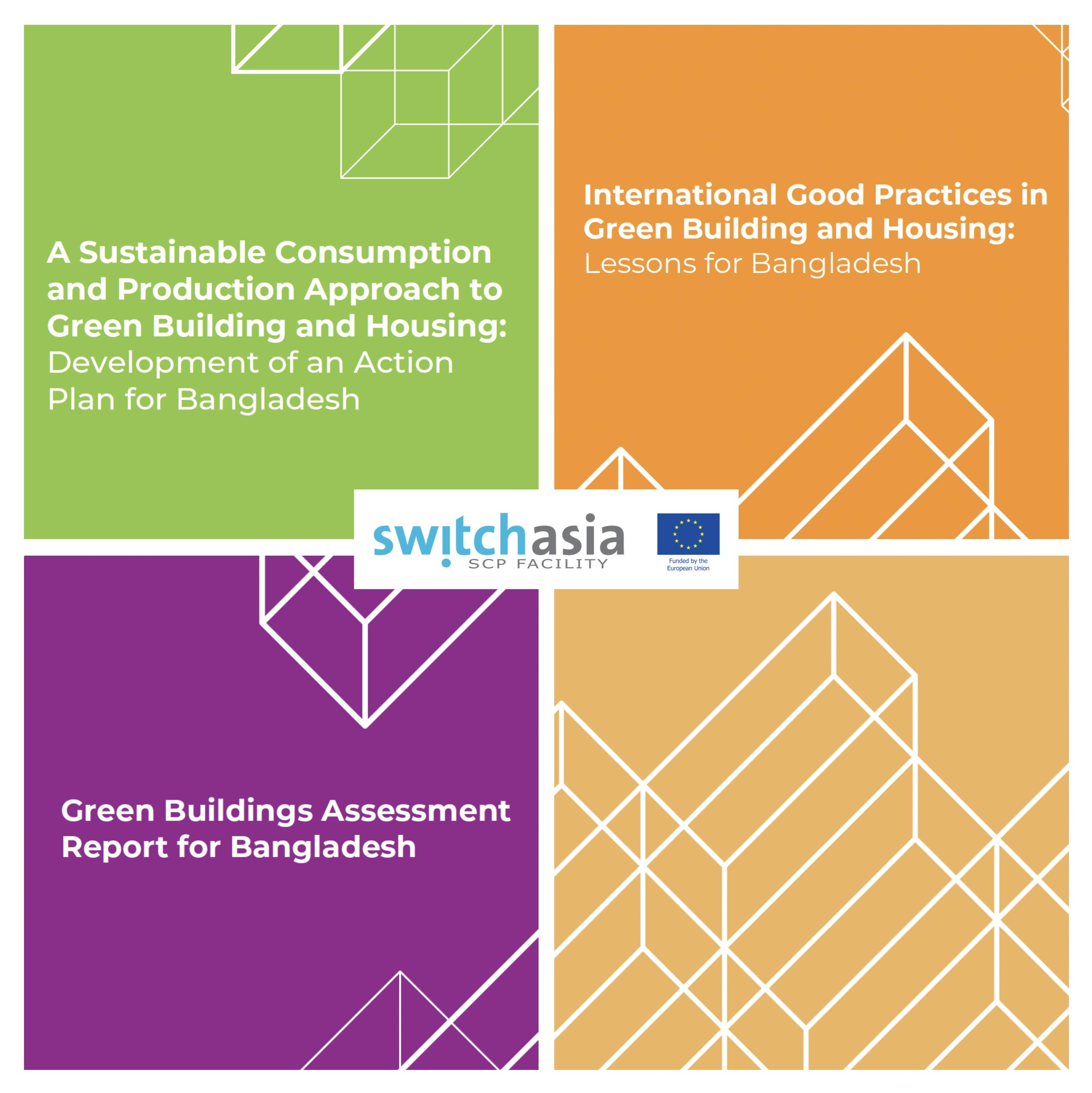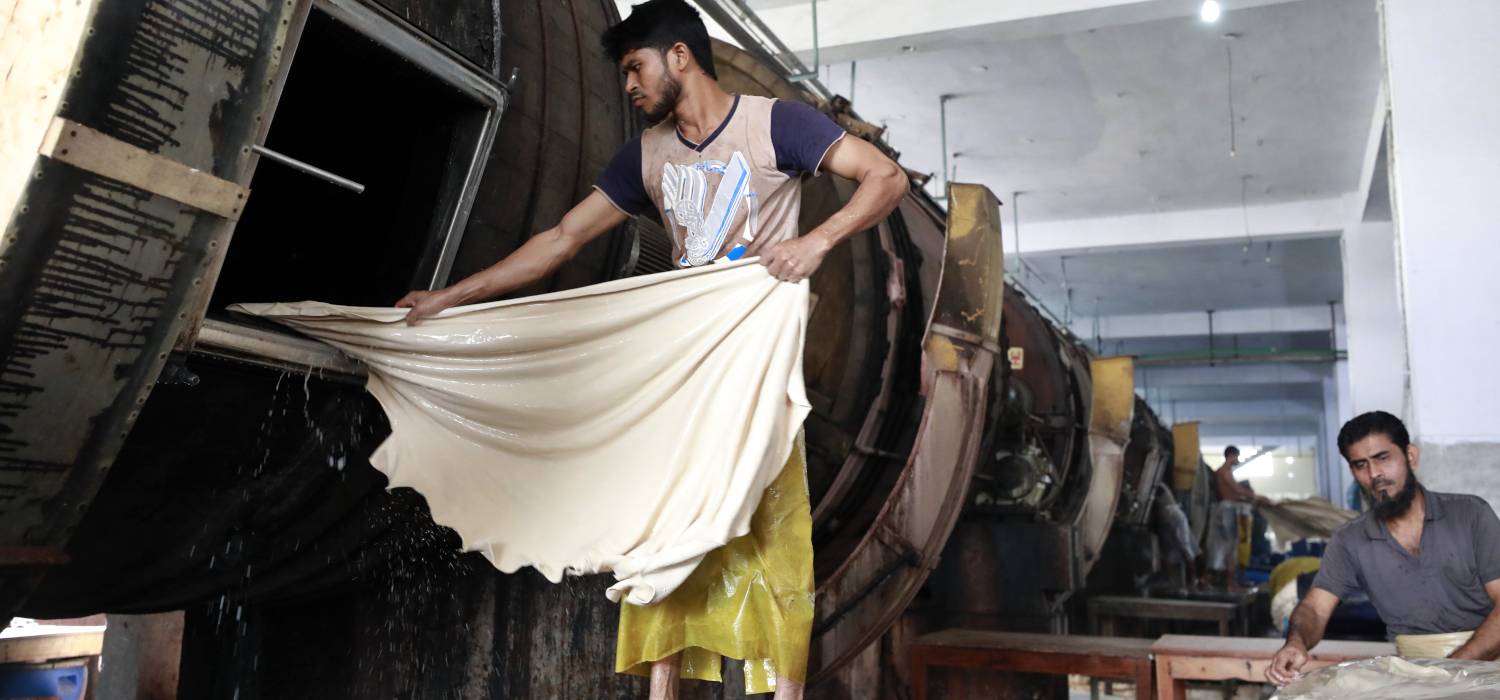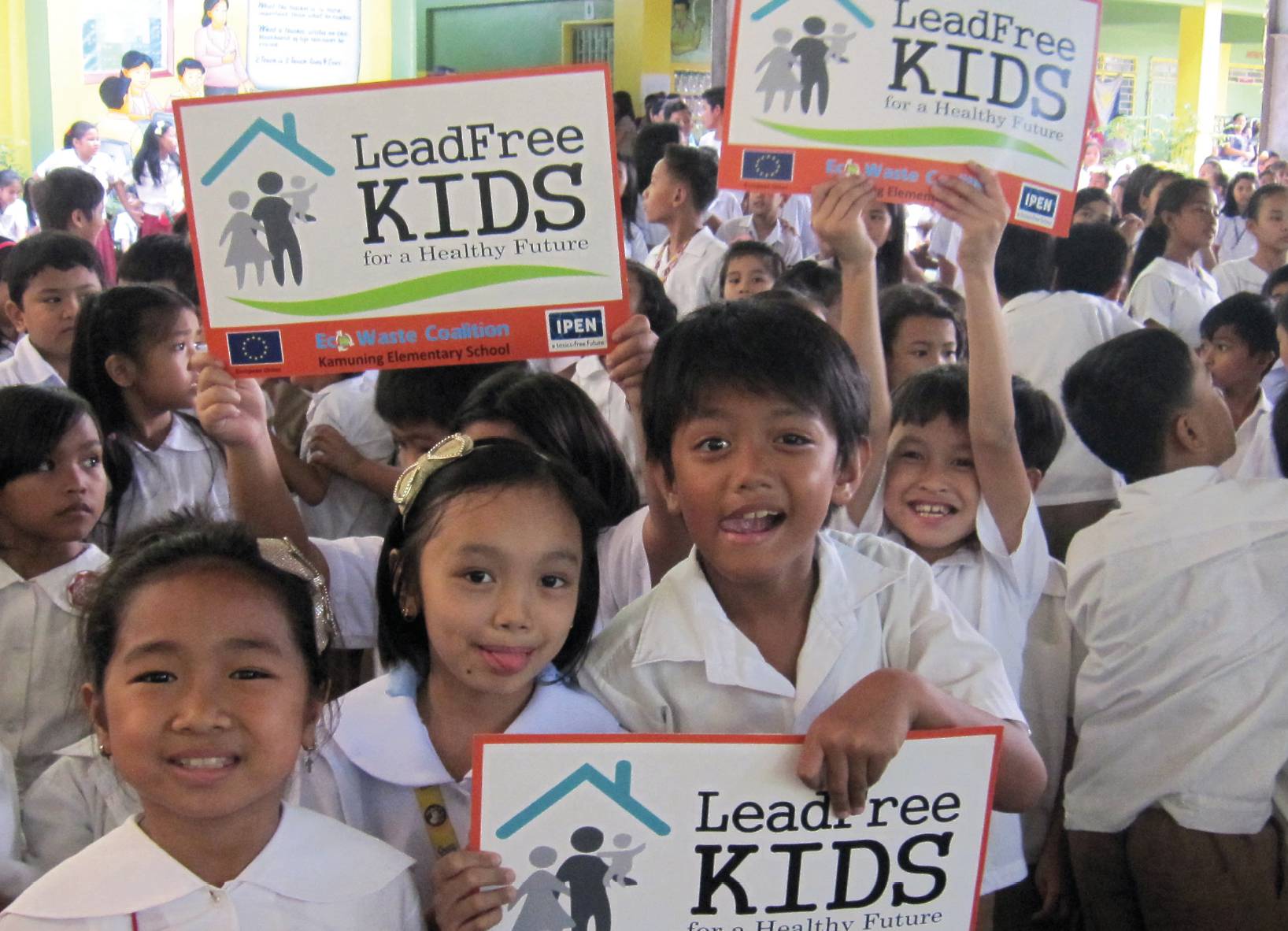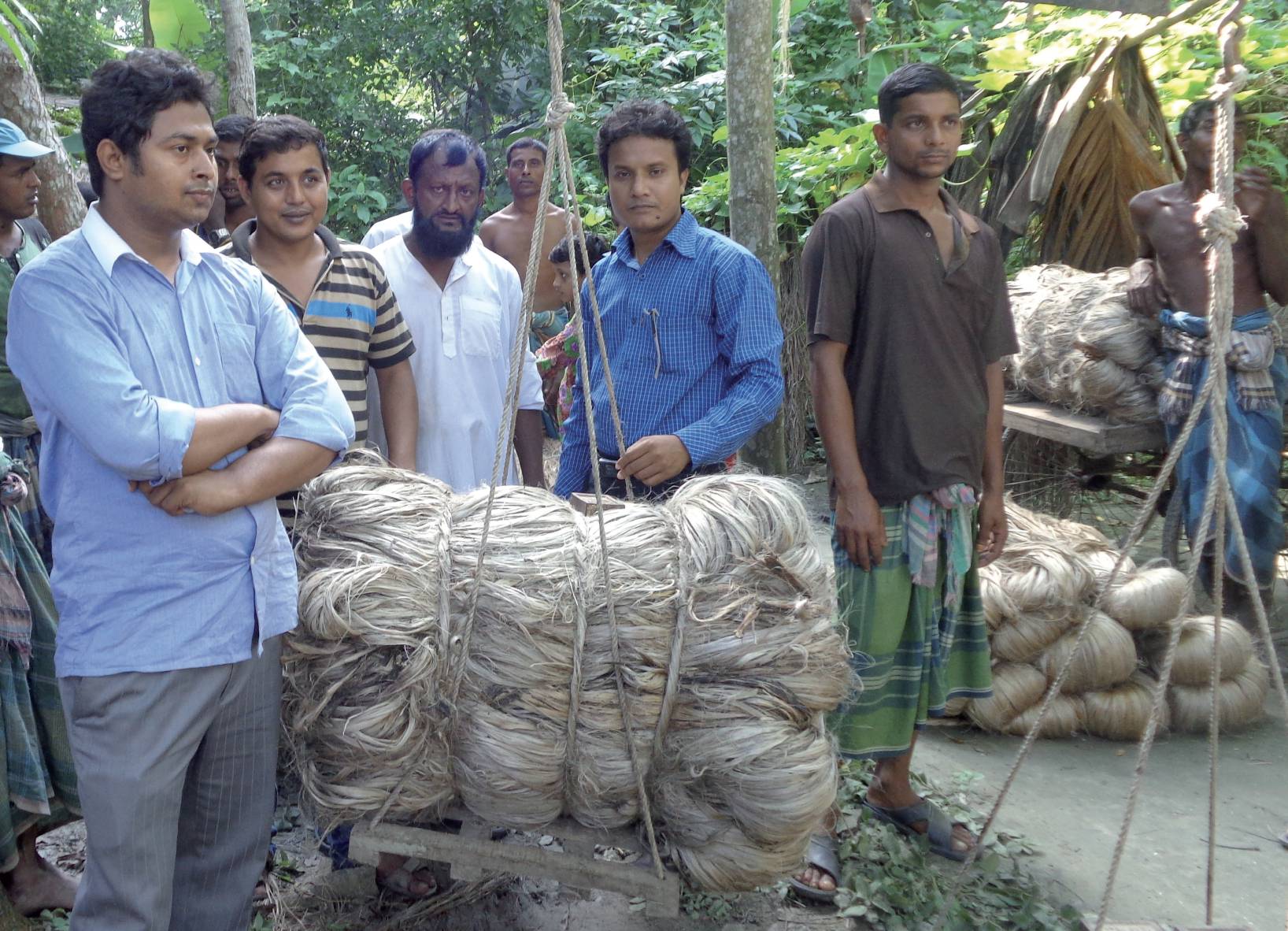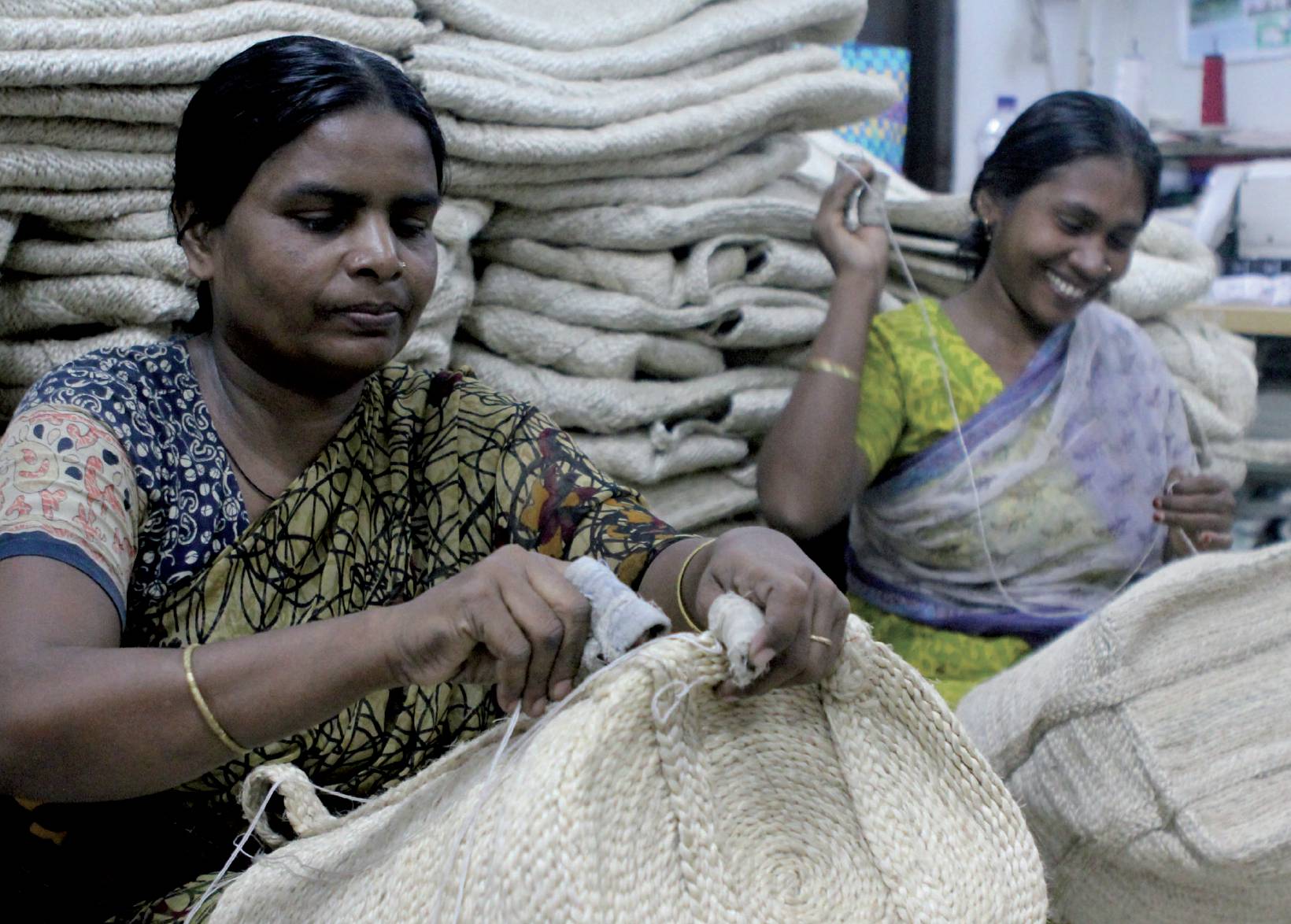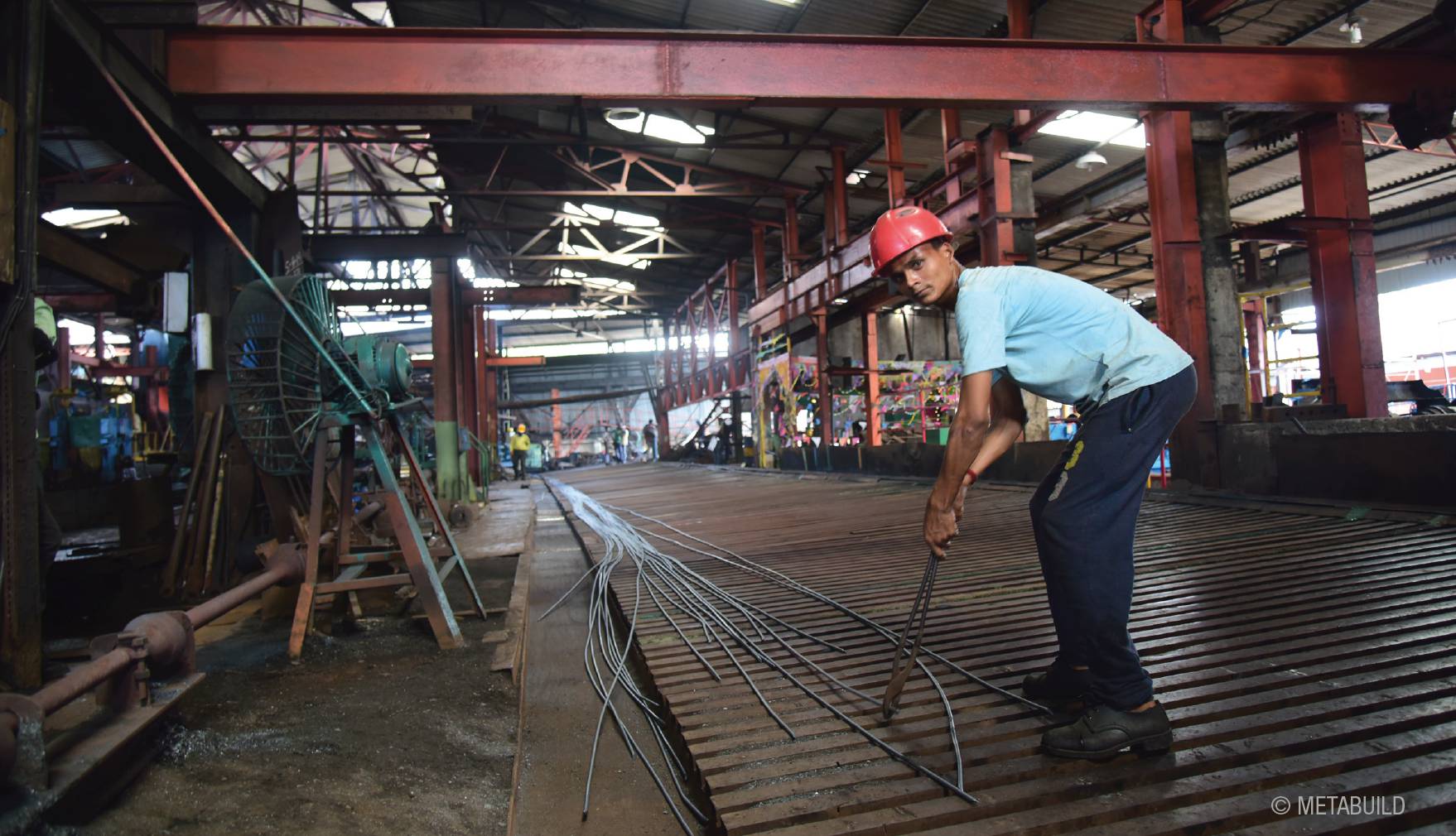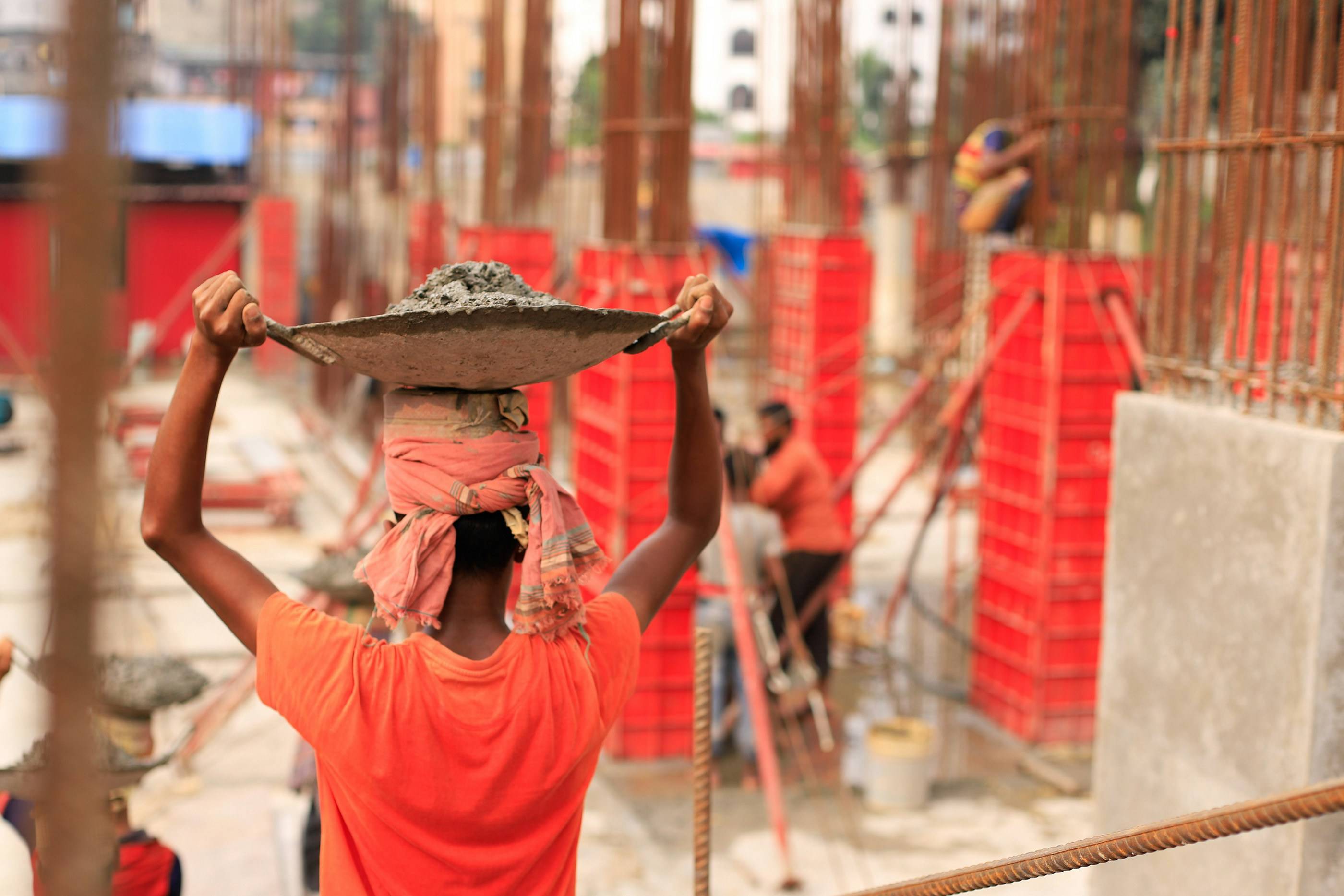
SCP Context
Bangladesh National Context for SCP and Connection to the Global Agenda
With a population of more than 165 Million, Bangladesh is one of the most densely populated countries in the world. In the past 20 years, the per capita income has grown considerably, and human development indicators, including longevity and education, have improved. While income has grown, there is large income equality and regional disparity, while more than 15% of Bangladesh’s population live below the poverty line. Its governments’ main strategy for development is to create employment in the manufacturing and service sector, upskilling the workforce and thereby reducing the economy’s reliance on agricultural and informal activities. This progress comes at a high cost environmentally; Bangladesh’s cities are among the most polluted in terms of water and air quality worldwide, and the biodiversity and environmental value of its rivers and wetlands, as well as coastal environments and arable lands have degraded, resulting in loss of ground water, deforestation and desertification.
The country seeks to further grow while safeguarding the environment. Challenges include low access to reliable and affordable power, poor transportation infrastructure, limited availability of serviced land, uncertain and complex business regulation, rapid urbanization and vulnerability to climate change and natural disasters, among others. In addition, lack of environmental and workers’ safety protection has garnered national and international attention, with the government and private sector working to improve both. While Bangladesh is known for its export industry, mainly in the textile sector, the relevance of its domestic consumers for its economy has grown. In terms of wealth, Bangladesh disposes of one of the most fertile agricultural grounds on earth and has substantial coal reserves and undeveloped gas grounds, especially the Bay of Bengal.
Climate change impacts are already visible in increased flooding and shifting of monsoon patterns today. Bangladesh’s geography and high population density makes it particularly vulnerable and it is considered that Bangladesh’s impacts mean a loss of 1-2 percent of GDP annually due to climate-related disasters.
Bangladesh has aimed at eradicating poverty and becoming a middle-income country, mentioning sustainable development as a crucial consideration. SCP therefore plays an important role in Bangladesh’s national policies and strategies. Bangladesh’s 8th Development Plan (2020-2030) integrates the direction set forward by the SDGs, taking SDG 12 “Responsible Consumption and Production” up more visibly than in the preceding plan.
Bangladesh presented its first Voluntary National Review (VNR) for the Sustainable Development Goals (SDGs) at the 2017 High-level Political Forum (HLPF), and repeated it in 2020 as part of its commitment to the global agenda on sustainable development. In the 2020 review on SDG 12, Bangladesh stated that consumption is of increasing concern regarding energy and power. Electric and electronic goods like air conditioners and cell phones have become increasingly popular. With current population growth and urbanisation trends, housing and building will become an even more important issue. Bangladesh stated that negative externalities need to be properly managed to make the country’s development sustainable. Low awareness, large stakeholder groups connected with SDG 12, and lack of resource-efficient technologies as well as the need for more international support are mentioned as key challenges in the field.
In the previous decade, Bangladesh has already adopted a number of national policies aligned with SDG 12 and sustainable consumption and production. Bangladesh has acknowledged the stretch between economic growth and decoupling of resources, especially fossil fuels. The National Industrial Policy (2016) aims to develop the country through rapid industrialization, an ambition combined with the national 3R Strategy for Waste Management (2011) which provides concepts to address the ever-increasing challenge of urban solid waste management (reduction, reuse, material recovery, recycling). Other, climate-relevant, action plans and policies include the Nationally Determined Contribution (NDC) submitted to the UNFCCC in 2015, and the Bangladesh Climate and the Bangladesh Climate Change Strategy and Action Plan (BCCSAP).
Challenges
- Being located on a flat river delta, the geographical location of Bangladesh as well as its land characteristics, multiplicity of rivers and the monsoon climate render it highly vulnerable to natural weather disasters, amplified by climate change.
- Bangladesh faces severe risks for further land degradation from agricultural pressures, social conflict, and food security.
- Due to lack of more efficient delivery, Bangladesh’s growing population affects progress on SCP as it directly impacts increases on resource consumption, waste generation and pollution levels (traffic congestion, water pollution, solid waste littering). However, per capita resource consumptions is still low compared to global averages.
- Food security: widespread and multidimensional poverty and inequality causes a quarter of the population to be food insecure.
- The Focus on the private sector is as the key driver of economic development in Bangladesh – yet also contributing to environmental degradation and causing workplace safety problems.
Priorities
The National Sustainable Development Strategy (NSDS) defines five strategic priority areas which are relevant to SCP design and implementation in Bangladesh. They have partly been reiterated in more recent national strategies and its National Voluntary Review of the SDGs in 2020:
- Sustained economic growth to further alleviate poverty and reduce inequality, including the creation of jobs as one of the top priorities.
- Development of priority sectors (including agriculture and energy). For example, Bangladesh seeks to introduce different varieties and species of crops, adopt improved technologies for agriculture and implement long-term climate change adaptation and water resource management plans. This will positively support food security. Further, the country is not equipped with sufficient energy resources, and acknowledges that fossil energy is not only costly but their combustion contributes to the climate vulnerability of the country. Therefore, energy conservation has been defined a cross-cutting priority in Bangladesh, which was manifested in the Energy Efficiency and Conservation Master Plan (EECMP) up to 2030.
- To mitigate and minimize adverse environmental impacts resulting from economic growth ambitions and to increase the economy’s climate change resilience, Bangladesh seeks to safeguard the environment, conserve natural resource and improve its disaster management.
- Existing policy and frameworks (e.g. Eight Five Year Plan and Background Paper on 10-Year Framework) need to be reviewed and updated to allow for SCP delivery, and to incorporate clear targets outlining what needs to be achieved by when, and how does SCP implementation contribute to achieving the SDGs, including gender issues.
- Sustainable public procurement should be adopted by the government to set market signals for sustainable producers, and to minimize the footprints caused by government consumption. A priority is laid at the housing sector as many buildings are commissioned for construction by the government.
- Governance: strengthen a more accountable local governance system.
Opportunities
- Up-scaling and implementation of efforts aimed at SDG targets keeping in line with local and international regulations, policies, frameworks and action plans. Use of the momentum for data gathering and analysis by SDG Tracker tool, and strengthening of actions to improve SDG 12 indicators.
- Explore collaboration with other donor community on projects on sustainable development, resource efficiency and water and waste management, funded by donor agencies (e.g. UNDP, ADB, World Bank, GIZ) in Bangladesh.
- Further strengthen a multi-stakeholder approach to sustainable consumption and production by involving the government, private sector, development partners, sector associations, media and SMEs/MSMEs.
- Support implementing resource efficiency-focused concepts in the private sector, especially SMEs/MSMEs in the leather, re-rolling mill, agro-based, housing and light engineering industries, the SCP Facility could provide better options for implementation.
- SCP can be incorporated into the existing policy framework rather than formulating a new SCP policy.
- Identifying innovative finance and strengthening SMEs and MSMEs on access to finance.
SWITCH-Asia Activities
2018
SCP Facility
- Preliminary assessment of SCP related policies, activities, needs/gaps, and opportunities.
Regional Policy Advocacy Component (RPAC)
Facilitated the participation of Bangladeshi key-stakeholders in the following regional/ sub-regional activities:
- Asia Pacific Low Carbon Lifestyles Challenge (19-22 Mar 2018), hosted by Thailand, regional level
- Transforming Asia Pacific: Innovative Solutions, Circular Economy and Low Carbon Lifestyles (17-19 Sep 2018), hosted by Thailand, regional level
- Asian Circular Economy Leadership Academy (3-8 Dec 2018), hosted by Thailand, regional level
2019
SCP Facility
- A demand for support was received from the Bangladesh Planning Commission requesting support for the preparation of the Bangladesh National 10YFP on SCP and the Bangladesh National Action Plan on SCP;
- A concept note with specific actions and timeline was approved by both the national government and the EU Delegation.
Regional Policy Advocacy Component (RPAC)
Facilitated the participation of Bangladeshi key-stakeholders in the following regional/ sub-regional activities:
- “Sustainability Reporting – Thinking Circular Economy by Businesses” - This event was organised back-to-back with 2019 Asia Pacific Forum on Sustainable Development (27 Mar 2019), hosted by Thailand, regional level
- Businesses Accelerating Inclusive Green Economies – "Leaving No One Behind” - Side event on the Responsible Business and Human Rights Forum co-organised by the Royal Thai Government, OECD, United Nations Development Programme (UNDP), ESCAP, International Labour Organization (ILO) and with the participation of the UN Working Group on Business and Human Rights (11 Jun 2019), hosted by Thailand, regional level
- WEBINAR: SDG 12.1 Reporting for SWITCH-Asia Countries – Connecting the dots between actions and reporting (5 Nov 2019), regional level
- Policy Dialogue on SDG12 Reporting (21 Nov 2019), hosted by Vietnam, regional level
- 2019 SWITCH-Asia Leadership Academy on Circular Economy (2-6 Dec 2019), hosted by China, regional level
- "Supporting decision making on SCP through training on Sustainable Procurement” - This event was organised back-to-back with International Conference on Sustainable Energy and Green Technology 2019 (11 Dec 2019, hosted by Thailand, regional level
2020
SCP Facility
- Based on continued conversations between the government and the SCP Facility, a new concept note on green buildings was developed and signed off.
- On the basis of the concept note, the assignment activities and deliverables were developed.
Regional Policy Advocacy Component (RPAC)
Facilitated the participation of Bangladeshi key-stakeholders in the following regional/ sub-regional activities:
- SWITCH2Green Meeting (Apr 2020)- RPAC initiated the discussion and shared the first report in 2020.
- Moving the Needle on Climate Change (10 Jun 2020)– The event was co-organised by the UNESCAP as a part of the 2020 Virtual United Nations Responsible Business and Human Right Forum (RBHRF), regional level
- World Environment Day 2020 (5-7 Jun 2020)– A media kit was provided to call for action to promote SCP as a part of the 2020 World Environment Day (WED) celebration, regional level
- Intervention in regional forum: Webinar on Sustainable Lifestyles for Plastics & Packaging Waste Management During a Pandemic COVID-19 (6 Aug 2020), regional level
- SCP in Tourism: Opportunities and Challenges with COVID-19 (8 Oct 2020), regional level
- Innovation and Connectivity through Farm to Fork (13 Nov 2020), regional level
- Sustainable Lifestyles for SCP (19 Nov 2020), hosted by Thailand, regional level
- Sub-regional Workshop on SPP for SACEP Countries (25 November 2020), the event was organised in partnership with South Asia Co-operative Environment Programme (SACEP) for South Asia region, Sub-regional level
- Support to Steering Committee of SWITCH-Asia (3 Dec 2020)– RPAC provided support for the annual Steering Committee Meeting and proposed 2021 workplan, regional level
- Regional Policy Dialogue on Circular Cities (4 Dec 2020), regional level
- Regional Dialogue Driving Mechanisms for Eco-Design in Asia (9 Dec 2020), regional level
- Leadership Academy on Circular Economy 2020 (14-18 Dec 2020), regional level
- Webinar: Innovations & Startups (16 Dec 2020), regional level
2021
SCP Facility
- Assignment launched in May 2021, seeking to integrate SCP implementation into the building and housing sectors by providing analysis, building capacity, and strengthening networks on green buildings / housing in Bangladesh.
- Two experts providing expertise and consulting with stakeholders; aim to develop and support preparation of implementation of an Action Plan on Green Buildings.
Regional Policy Advocacy Component (RPAC)
Facilitated the participation of Bangladeshi key-stakeholders in the following regional/ sub-regional activities:
- Contextualising the Circular Economy for Action (4 Feb 2021), regional level
- Technology for Circular Economy: A Prologue to the 2021 SWITCH-Asia Leadership Academy (25 March 2021), regional level
- Circular Economy and Sustainable Lifestyles Course (18 May 2021) – launch of offline course on SCP for policy makers and young professionals, regional level
- South Asia Policy Dialogue on the Role of Businesses in Accelerating SCP (23 March 2021) – to disseminate the findings of the RPAC Study on SCP – Stocktaking of Perspectives in South Asian Business, sub regional level
- GO4SDGs High level launch in Asia and the Pacific (21 April 2021), regional level
- World Environment Day 2021 (4 June 2021), regional level
2022
SCP Facility
- The experts have delivered their analysis and recommendations for the Action Plan on Green Buildings and discussed these at a stakeholder workshop held in February 2022. Action Plan on SCP implementation in the housing and buildings sector in Bangladesh › Resource Library | SWITCH-Asia


